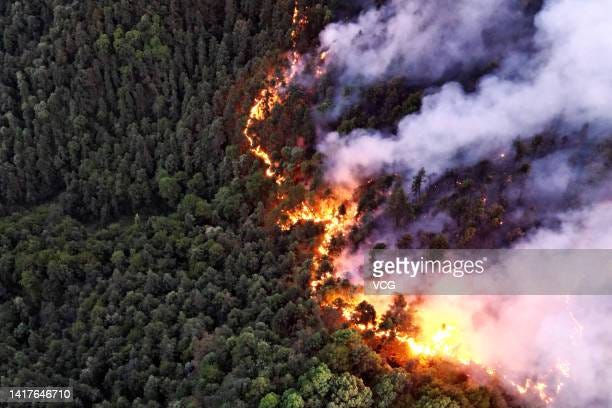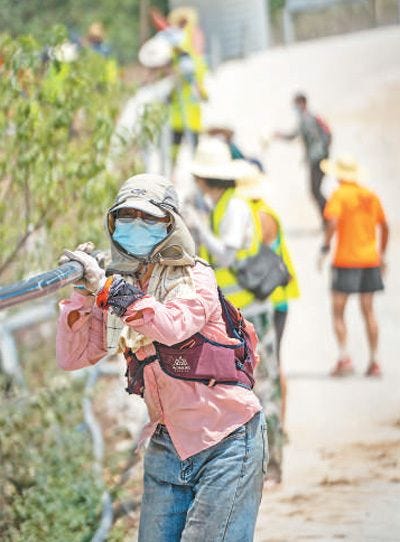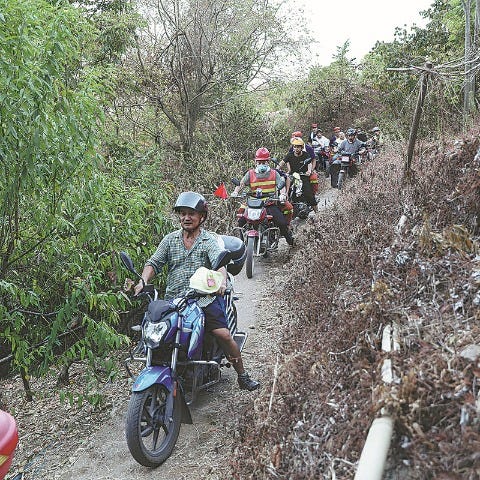How did China’s Chongqing win the battle against wildfires
This summer, severe droughts and heat waves hit many places in the world, including Southern China. Dozens wildfires were reported in roughly 12 of the 38 districts and counties in Chongqing, one of China’s most populous municipalities.
Putting out the fires was difficult, as it was in China’s worst heat wave in over 60 years. Some rivers were almost dried up and high temperature kept on causing spontaneous combustions.
It is a very dangerous situation to the over 30 million people of Chongqing, one of the four municipalities under direct administration of the central government. As it is called a “mountain city”, the city was built in mountains, so the residents’ houses are very close to forests and bushes. Nearby people felt suffocated by the heavy smoke of woods burning.
To help Chongqing, many firefighters and rescue personnels were sent from nearby Sichuan, Gansu and Yunnan provinces to Chongqing. And to save their homes, many local residents joined the volunteer teams to help transferring firefighters and all kinds of materials they need.
In almost a month, from August 2 to 26, all the wildfires were doused, and there were no reports of serious injuries, deaths, or damage to major infrastructure.
Those days are hard. Polluted air, high temperature, lack of water, power shortages and blackouts ... But local residents were determined -- they must win. They don’t want to surrender to the extreme weather and natural disaster.
Totally over 24,000 firefighters and rescue personnel were deployed to contain the flames. And thousands of local residents joined the volunteer teams.
A school teacher named Zheng Li, who joined the volunteer team along with her husband, told Chinese media that “many of us were totally at a loss of how to cope with the situation. We decided to do something after witnessing the open flames in Jinyunshan National Reserve from our home in the nearby Beibei District.” The couple helped to send lunch boxes for 500 people.
Local businesses also stepped up to assist the firefighting mission. Local hotels were swiftly converted into makeshift accommodations for firefighters and volunteers from other provinces. Local restaurants and supermarkets provide enough food and water for them. Everybody wants to do something. Local residents sent everything they thought that might be usable to the firefighters, including cushions to let them sit comfortable on the ground and ice creams which surprised the firefighters.
On China’s social media, videos showed hundreds of motorcyclists riding through the uphill terrain to transport fire extinguishers, water, and other necessities into the mountains engulfed by a fiery orange blaze.
Zhang Yu, a 21-year-old motorcycle repair shop owner, was the first to organize a motorcycle volunteer team through social media to help transferring firefighters and goods. As the places of the fires are in mountains and could not be reached by cars or trucks, motorcycle became the only transportation means. Thousands of local residents who have motorcycles joined the team.
“We have to attach tire chains to the rear wheel, otherwise it’s very easy to lose balance when going up the unpaved paths that were at a near 90 degree angle,” Li Lang, a motorcyclist, told local media. “Our work is mostly done after transporting the supplies to supply centers halfway up the hill. The frontline professional rescue forces are taking the real risks.”
As the climate problems is getting more and more serious, we have to face more natural disasters. We need the courage and unity to win one after another battle, but what we truly need to do more is to stop the deterioration of our natural environment.
What happened in Chongqing is not only a legend, it is a warning by the nature to us, just as other disasters do. ###





